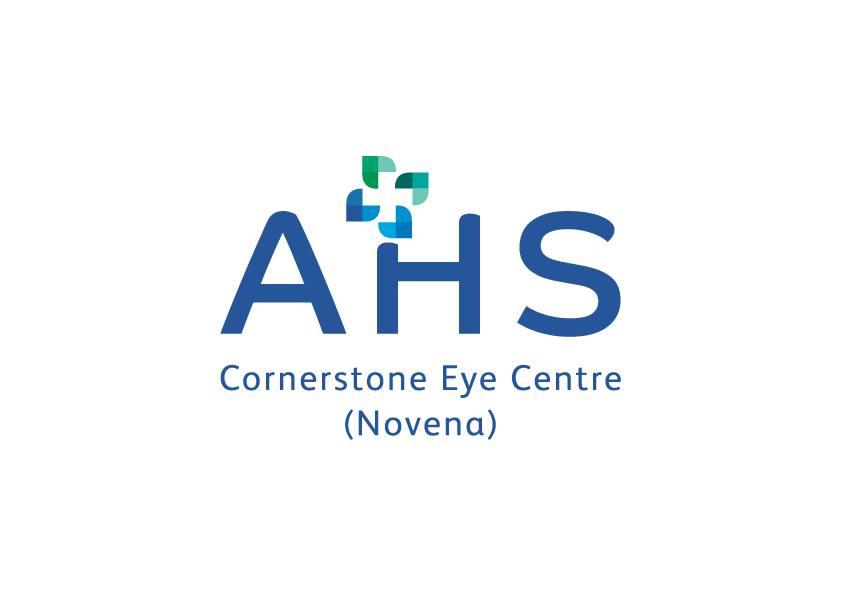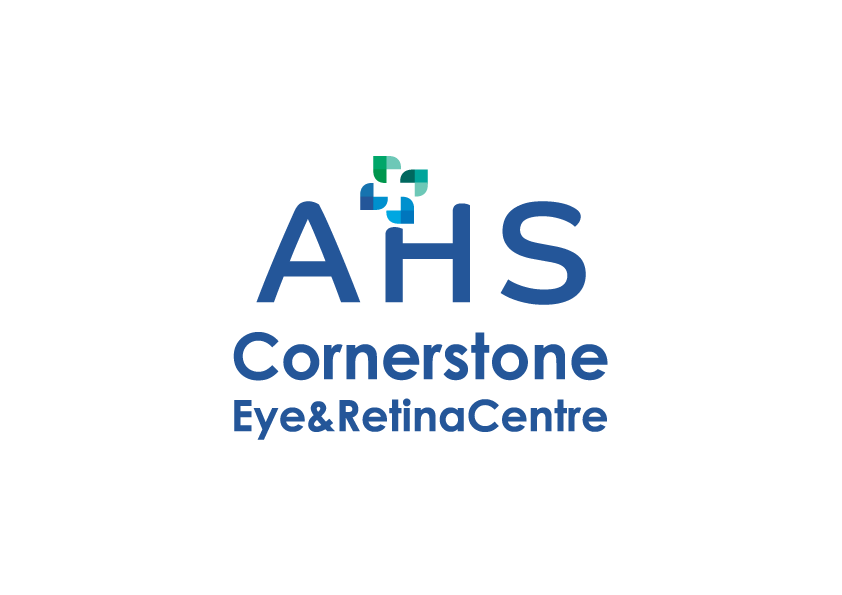

At AHS’s Ophthalmology practices (Cornerstone Eye & Retina Centre, Cornerstone Eye Centre (Novena), and Cornerstone Eye Centre (Alvernia)), we provide dedicated care for all your eye health needs. Our ophthalmologists manage a wide range of conditions, from common concerns like cataracts and glaucoma to more complex issues such as retinal disorders and uveitis. We specialise in vitreoretinal medicine and surgery, treating conditions such as retinal detachment, diabetic retinopathy, and macular degeneration. Our focus is on personalised treatments to help you achieve and maintain clear vision.
Consult a GP online to get a referral memo, required for insurance claims (if applicable), for your visit to an Ophthalmologist at AHS.
Blepharitis, inflammation of the eyelids, causes redness, itching, and dandruff-like scales on eyelashes. Treatment typically includes regular eyelid cleaning, warm compresses, and possibly antibiotic or steroid eye drops. Good eyelid hygiene can help manage symptoms.
Cataracts cloud the eye’s lens, leading to vision impairment. Refractive small incision cataract surgery with intraocular lens implant is a common treatment. This minimally invasive procedure replaces the clouded lens with a clear artificial lens, restoring vision.
This condition causes fluid accumulation under the retina, affecting vision. Treatments may include laser therapy or photodynamic therapy to reduce fluid and improve vision, depending on severity and duration.
Issues with contact lenses range from discomfort to infections. Proper hygiene, correct usage, and regular eye examinations are crucial. Switching lens types or solutions may be recommended for persistent problems.
Caused by diabetes, this condition affects the retina’s blood vessels. Management includes controlling blood sugar levels, laser treatment, injections, or surgery to prevent vision loss. Regular eye exams are vital for early detection and treatment.
Dry eyes, often due to inadequate tear production, can cause discomfort and vision issues. Treatments include artificial tears, prescription eye drops, or minor procedures to block tear ducts, helping retain natural tears.
These are common visual disturbances. While usually harmless, a sudden increase, especially with flashes of light, can indicate retinal detachment. Prompt medical attention is necessary in such cases.
Glaucoma damages the optic nerve, often due to high eye pressure. Treatment, aiming to lower eye pressure, includes eye drops, laser treatment, or surgery. Regular eye exams are essential for early detection and treatment.
These are growths on the eye’s surface, often related to UV exposure. Treatment ranges from lubricating eye drops to surgical removal in severe cases. Wearing sunglasses and hats can help prevent these conditions.
Refractive errors like nearsightedness, farsightedness, and astigmatism affect vision clarity. Corrective measures include glasses, contact lenses, or refractive surgery such as LASIK, depending on the individual’s needs and eye health.
This serious condition involves the retina pulling away from its normal position. Vitrectomy surgery is a common treatment for macular holes, epiretinal membrane, vitreous hemorrhage, and retinal detachment. Early treatment is crucial to prevent permanent vision loss.
These disorders affect the retina’s blood vessels, potentially leading to vision loss. Treatment depends on the specific disorder and may include laser therapy, injections, or surgery to manage and preserve vision.
Inflammation inside the eye, known as uveitis, can cause redness, pain, and vision problems. Treatment usually involves steroid eye drops, injections, or oral medications to reduce inflammation.
Common issues include refractive errors, lazy eye, and congenital cataracts. Early detection and treatment, which may involve glasses, patching, or surgery, are crucial for proper visual development.
Blepharitis, inflammation of the eyelids, causes redness, itching, and dandruff-like scales on eyelashes. Treatment typically includes regular eyelid cleaning, warm compresses, and possibly antibiotic or steroid eye drops. Good eyelid hygiene can help manage symptoms.
Cataracts cloud the eye’s lens, leading to vision impairment. Refractive small incision cataract surgery with intraocular lens implant is a common treatment. This minimally invasive procedure replaces the clouded lens with a clear artificial lens, restoring vision.
This condition causes fluid accumulation under the retina, affecting vision. Treatments may include laser therapy or photodynamic therapy to reduce fluid and improve vision, depending on severity and duration.
Caused by diabetes, this condition affects the retina’s blood vessels. Management includes controlling blood sugar levels, laser treatment, injections, or surgery to prevent vision loss. Regular eye exams are vital for early detection and treatment.
Dry eyes, often due to inadequate tear production, can cause discomfort and vision issues. Treatments include artificial tears, prescription eye drops, or minor procedures to block tear ducts, helping retain natural tears.
These are common visual disturbances. While usually harmless, a sudden increase, especially with flashes of light, can indicate retinal detachment. Prompt medical attention is necessary in such cases.
Glaucoma damages the optic nerve, often due to high eye pressure. Treatment, aiming to lower eye pressure, includes eye drops, laser treatment, or surgery. Regular eye exams are essential for early detection and treatment.
These are growths on the eye’s surface, often related to UV exposure. Treatment ranges from lubricating eye drops to surgical removal in severe cases. Wearing sunglasses and hats can help prevent these conditions.
Refractive errors like nearsightedness, farsightedness, and astigmatism affect vision clarity. Corrective measures include glasses, contact lenses, or refractive surgery such as LASIK, depending on the individual’s needs and eye health.
This serious condition involves the retina pulling away from its normal position. Vitrectomy surgery is a common treatment for macular holes, epiretinal membrane, vitreous hemorrhage, and retinal detachment. Early treatment is crucial to prevent permanent vision loss.
These disorders affect the retina’s blood vessels, potentially leading to vision loss. Treatment depends on the specific disorder and may include laser therapy, injections, or surgery to manage and preserve vision.
Inflammation inside the eye, known as uveitis, can cause redness, pain, and vision problems. Treatment usually involves steroid eye drops, injections, or oral medications to reduce inflammation.
Common issues include refractive errors, lazy eye, and congenital cataracts. Early detection and treatment, which may involve glasses, patching, or surgery, are crucial for proper visual development.
Why Choose Us

Technology
AHS embraces innovation, constantly upgrading our medical technology to stay at the forefront of industry advancements.

Expertise
Our team includes experienced surgeons, nurses, and optometrists, ensuring you’re in capable hands.

Trust
AHS’s strong reputation is built on experience and trust, supported by our extensive network of referred patients.
Our Ophthalmology Specialists
Learn more about Ophthalmology
Our Clinics
Cornerstone Eye & Retina Centre
Address
Farrer Park Medical Centre, Connexion
1 Farrer Park Station Road #12-01
Singapore 217562
Contact
+65 6636 0930
Cornerstone Eye Centre (Novena)
Address
Cornerstone Eye Centre (Novena)
Royal Square Medical Centre
101 Irrawaddy Road, #13-08, Singapore 329565
Contact
+65 6970 2629
Cornerstone Eye Centre (Alvernia)
Address
Cornerstone Eye Centre (Alvernia)
820 Thomson Road Mount Alvernia Medical Centre Block A
#06-05 Singapore 574623
Contact
+65 6592 3778
